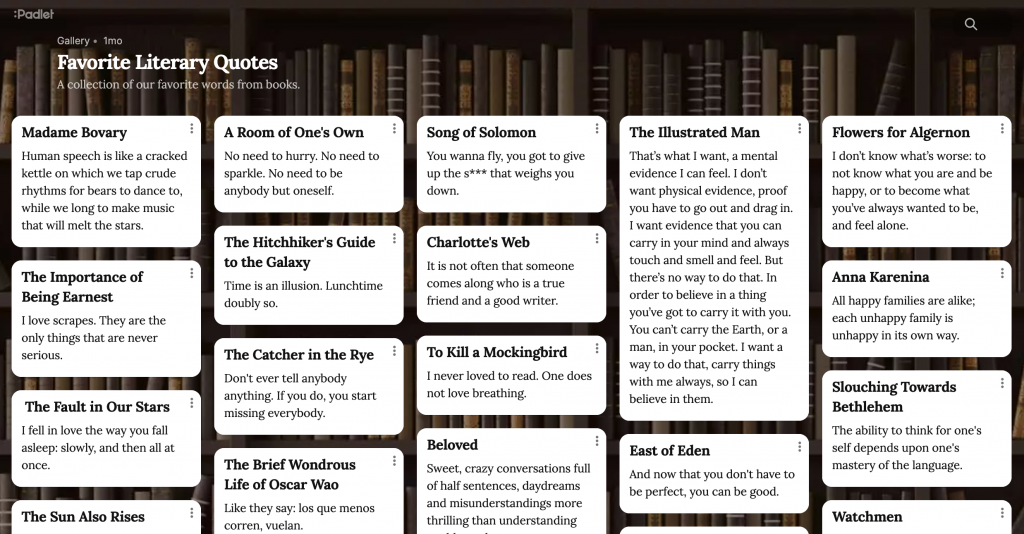I know, I know. I too received yet another reminder from Google Workspace that Jamboard is going away (sad face). With Google Jamboard set to retire at the end of the year, many of us are wondering what tool can fill its shoes. I’ve been testing out a few tools including Miro and FigJam as listed in my previous blog post. But lately, I’ve been really impressed with Padlet.
Padlet is a versatile platform with robust features that enhance collaboration and creativity. It functions like a digital bulletin board where users can post and organize a variety of content including text, images, videos, links, and more. Faculty can create a shared board for students to post information or even create a digital poster session. It can bring fresh energy to the classroom and provide new ways for students to engage.

Import Jamboard Directly Into Padlet
After December 31st, Google will begin deleting all Jamboard files. In order to save your files, you can download the Jamboards as PDFs. Or you can import them directly into Padlet. To import a Jamboard into Padlet, go to your Padlet dashboard, click “Make,” and then select “Import from Jamboard”. If you haven’t already connected your Google Drive, you’ll be instructed to do so and choose the specific Jamboard files you want to import into your Padlet board. Watch the video below for a mini demo of these steps.
Use Padlet Inside Or Outside Of Moodle
If you’re using Moodle, you can easily add Padlet to your Moodle course. This allows students to automatically be enrolled to your Padlet. However, you can use Padlet outside of Moodle as well. Anyone with a Swarthmore account can log into the paid version of Padlet at swarthmorecollege.padlet.org/auth/login. Use Google to complete the login process.
Why Padlet?
Jamboard was great for real-time collaboration, and Padlet offers even more options. It’s very easy-to-use, making it an ideal space for students to share ideas, analyze material, and connect with each other. Here are some highlights of Padlet’s features:
Customizable Layouts
Padlet offers multiple layouts such as grids, timelines, and freeform canvases. This allows you to choose the one that best supports your activity. For instance, the timeline layout is perfect for when students need to plot out a list of historical events in order. The canvas layout allows for free-form brainstorming, ideal for group discussions.
Multi-Media Sharing
Students can post a variety of content including text, images, videos, and audio directly on the board. Students could share short video responses to readings or post visuals that capture subject themes. They could even upload news articles, graphs, or clips.

Real-Time Collaboration
Padlet works great for live class sessions and asynchronous assignments. Students can add to the board instantly, whether they’re in the classroom or outside the classroom for homework, and can see their peers’ posts as they happen, creating a space that fosters interaction.
Built-In Feedback Tools
Students can comment, “like,” and even star each other’s posts, making peer feedback simple and engaging.
Great For Social And Emotional Learning
Padlet is also great for fostering social and emotional connections within your classroom that build Faculty-Student and Student-Student connections. It can easily be used for icebreakers, check-ins, and “getting-to-know” activities. By creating interactive spaces, Padlet enhances social and emotional learning, helping both faculty and students get to know each other better by building a sense of belonging and community.
Getting Started with Padlet
If you’re interested in exlporing Padlet, be sure to reach out to Swarthmore Academic Technology at support.swarthmore.edu. We’re here to help with setup, integration, and any questions you may have.

